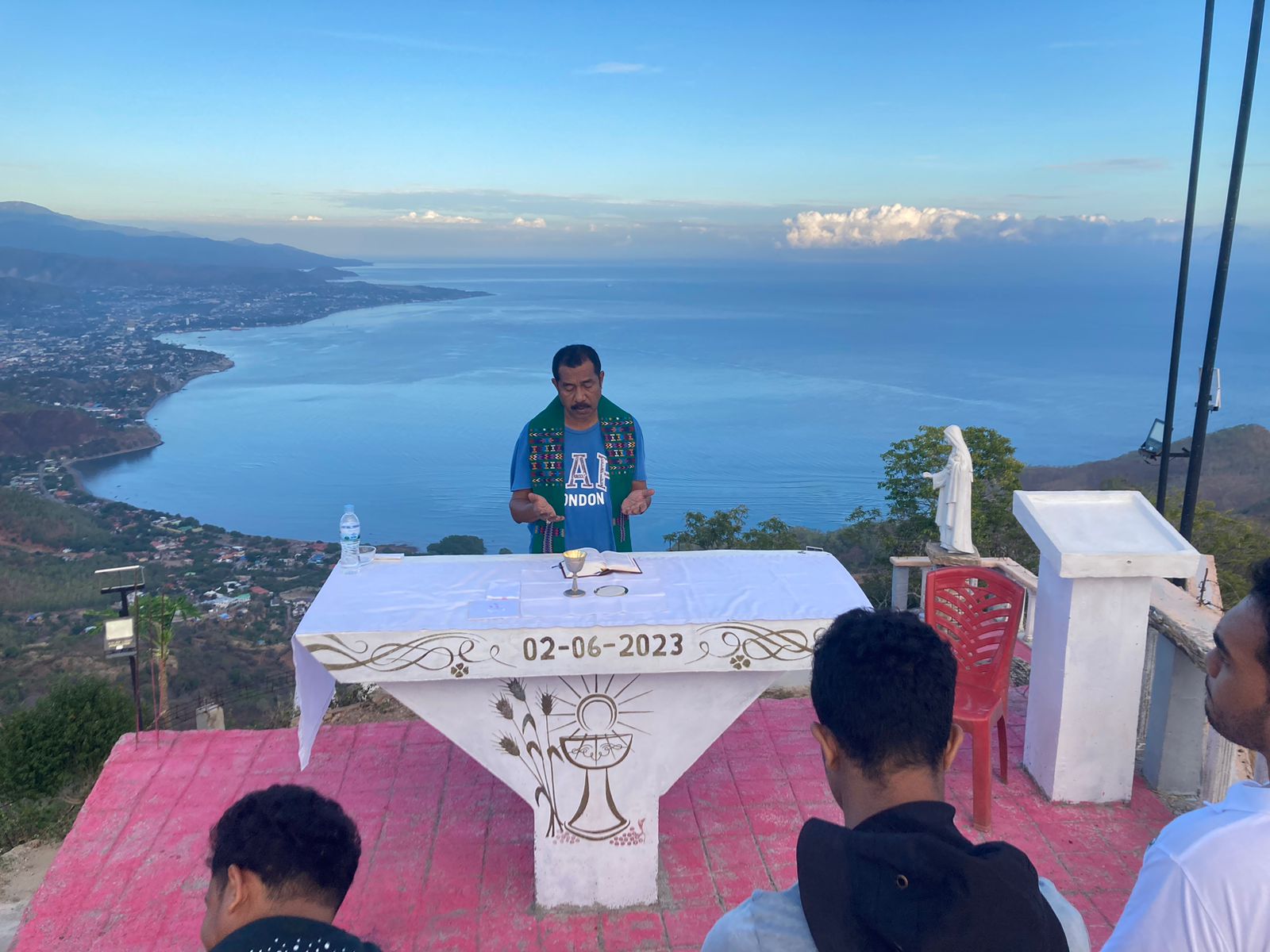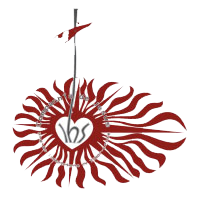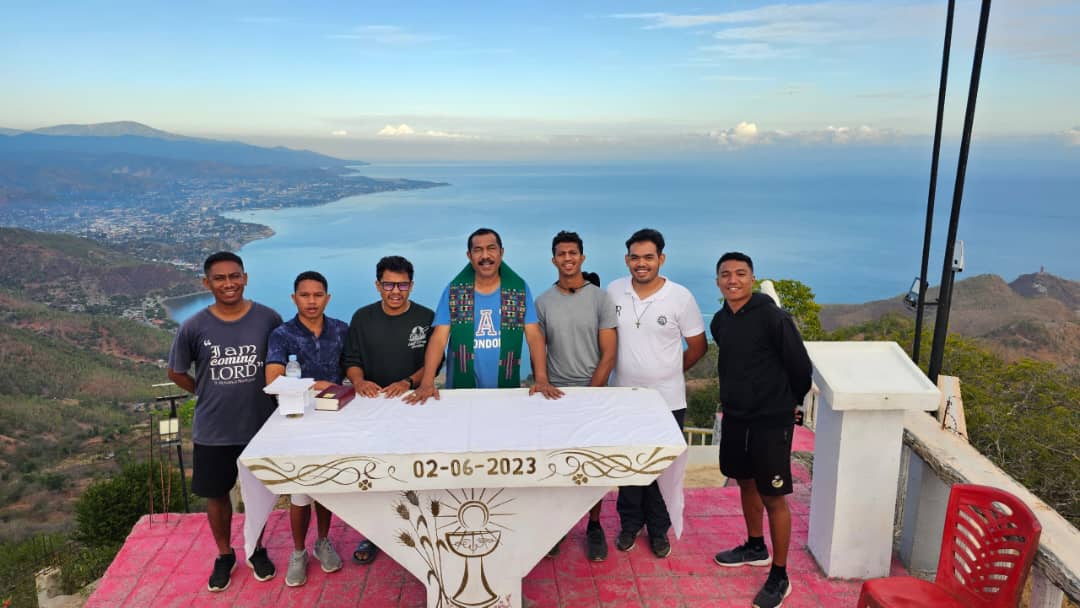As I reflected on our journey with Father Joaquim, SJ, to the mountains of Cacusa, I experienced God’s love in a profound way that led me to discover His presence in creation. Cacusa is the highest mountain in Dili, and at one moment, I witnessed the beauty and deep peace of the. This filled my heart with appreciation and a profound sense of gratitude to God for His creation, as every part of it was beautiful and inspiring. In that moment, I felt God’s presence through the beauty and tranquility of the sunrise, which was filled with vibrant colors that illuminated the world, bringing light and hope to humanity. It reminded us that the world is filled with light, offering hope for us to carry out God’s mission and ultimately glorify Him alone. During this time of silence, we prepared ourselves to encounter God, as we had a Mass in the mountains of Cacusa, presided over by Father Joaquim, specifically dedicated to the celebration of August 30, 1999, the day of the Timor-Leste Referendum.
The Gospel of John 15:9-17 led me to reflect on this powerful encounter with God’s presence, reminding me of His abiding love and His call for me to live in His light of hope. It also prompted me to consider the significance of the celebration of August 30, 1999.
In John 15:9-17, Jesus speaks of remaining in His love and keeping His commandments as acts of love. This profound message of love, sacrifice, and mission resonates deeply with significant historical events like August 30, 1999. In this passage, Jesus speaks to His disciples about the depth of His love for them and invites them to remain in His love just as He remains in the love of the Father. He commands them to love one another as He has loved them and offers the ultimate example: “Greater love has no one than this: to lay down one’s life for one’s friends” (Jn. 15:13).
Reflecting on this passage in the context of the celebration of August 30, 1999, reminds us of the immense sacrifice and love shown by the people of Timor-Leste. The decision to vote for independence came with the risk of persecution, violence, and loss. Yet, the courage of the Timorese people to stand up for their freedom was a powerful expression of their love for their nation, families, and future generations. Just as Christ laid down His life for His friends, many Timorese laid down their lives for the hope of a free and just nation.

This passage also led me to reflect on the Ignatian concept of interior freedom—making decisions not based on fear or force but from a place of clarity and love. The referendum of 1999 can be seen as a moment of national discernment, where the Timorese people collectively made a choice aligned with their deepest desire for freedom, dignity, and justice.
In their choice, they demonstrated spiritual freedom as Ignatius describes: freedom from fear despite the anticipated violent backlash after voting for independence. According to Ignatian spirituality, discernment involves grappling with both consolation and desolation—the joys and struggles of life. The Timorese people had lived in desolation under occupation, experiencing violence, oppression, and loss of freedom. However, their decision in 1999 was a movement toward consolation; a choice for a future that was uncertain yet guided by hope for a better life grounded in their God-given right to self-determination.
Finally, as we celebrate the anniversary of this historic moment in 2024, we are called not only to remember the sacrifices made but also to reflect on how we continue to live out this love in our daily lives. The referendum manifested collective courage rooted in a deep desire for peace, justice, and dignity—Christ-like values that transcend individual interests and call for a greater commitment to the common good, as Jesus commands us to love one another selflessly. Moreover, as we celebrate this significant date of August 30, 1999, it reminds us that true freedom is found in love—a love willing to sacrifice and serve to build a future that reflects God’s justice and peace. It is an invitation to renew our commitment to these values for which we fought and to ensure they continue to guide our nation forward.
In light of the Gospel, celebrating the referendum is not only about commemorating past victories but also about calling us to live in ways that honor the love and sacrifices made for freedom. As Jesus commands us to love one another, we are invited to reflect on how we contribute to our community’s flourishing, as well as that of our nation and the world, by remaining in God’s love and sharing it generously with others.
By: Sch. Danilo Soares

